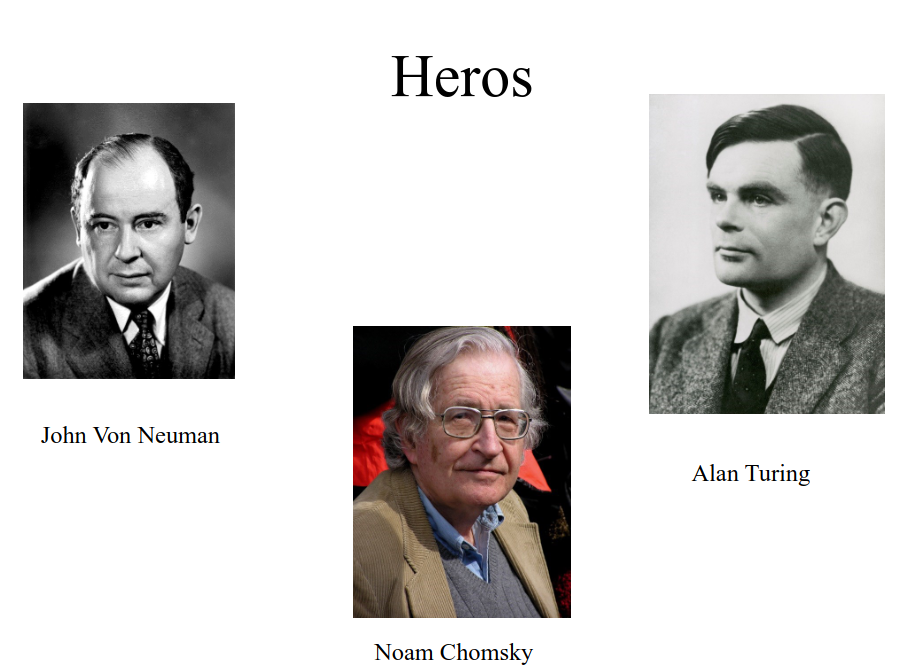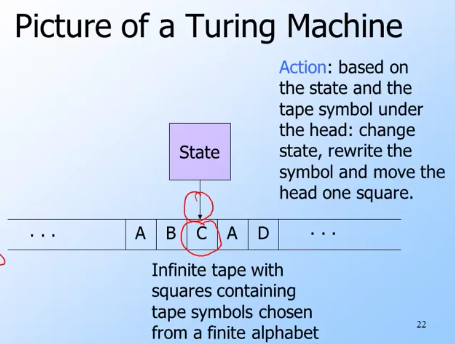tags : Computation and Computer Theory, The Analytical Engine, Regular Expressions

What is Automata Theory
Logic of computation with respect to simple machines(
automata)
Automatons
- plural:
automata - Abstract models of
machinesthat perform computations on aninputby moving through a series ofstates - At each
state,transition functiondeterminesnext statebased onpresent state - Once entire
inputhave been read and is in anacceptable state,machineacceptsinput
Incomplete list of types of Automatons
The most general and powerful automata is the
Turing machine
- Finite state machine(FSM)
- Pushdown automata(PDA)
- Linear bounded automata(LBA)
- Turing machine
More on Automatons Types
Finite state machine(FSM/FSA/FA/SM)
- See Finite Automata
Pushdown automata(PDA)
Linear bounded automata(LBA)
Turing machine
See Turing Machines

- Purpose: Prove that certain specific
languageshave no algorithm.- Compared to regular programming languages like C++, it’s easier to prove it with a TM because it’s so simple
- TM are as powerful as any computer and have infinite memory
- So if there’s something a TM cannot solve, it probably cannot be solved.
- A Turing machine is a FSM but the inverse is not true.